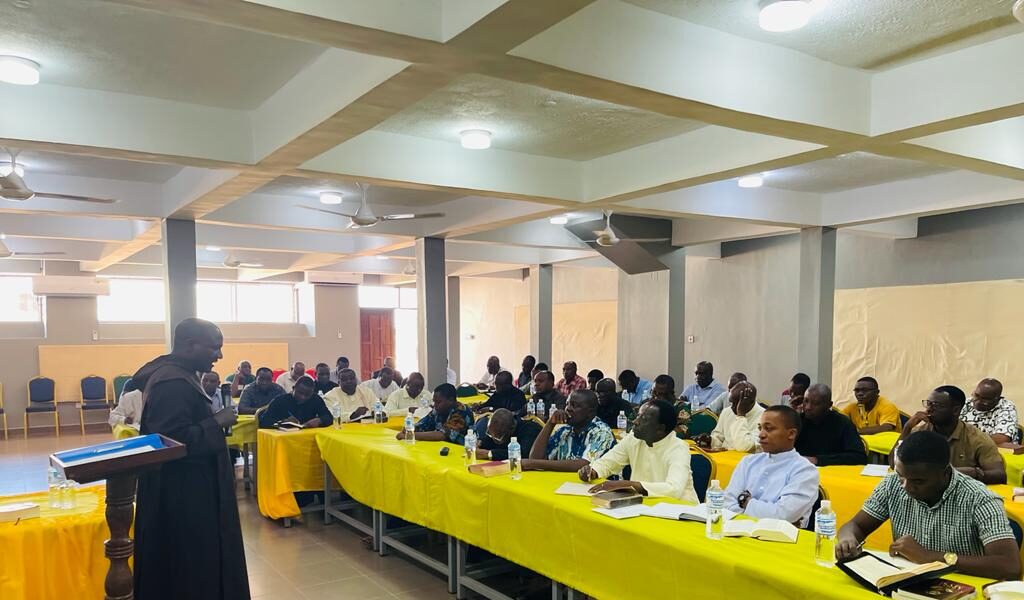ADMISTRATION AND FINANCE
This department provides economic services. The finance department is a custodian of all the finances and assets of the diocese. The office ensures accountability and transparency in the utilization of resources available in the diocese. Finance department through financial committee is charged with the duty to see to it that financial and material resources necessary for evangelization are at the diocese’s disposal. It is from this juncture the department runs some income generating projects which are service oriented. These include Nzimano Hostel, community centre, Amani Beach, Peace and reconciliation centre, Nzimano soap factory etc. under this department one finds too some centers which offer services to the religious and society. These include Kigoma Catholic Training Centre(KCTC), Spiritual and Pastoral Centre (SPC), Caritas Building Unit (CBU) and Kasulu Technical School (KTS) Organogram.
General Objectives of the Finance department
specific Objectives
Duties of Finance departiment
Challenges
With regard to personnel, the department still lacks enough trained staff as compared to the present work load. The departments lacks the competent Secretary, Sales and marketing personnel, Fundraising expert, Estate manager (for lands and plots), Expert in Agriculture and It Technician.
The department is also in dare need of some Material resources such as plots or lands which are legally owned for putting up buildings, for farming, business, manufacturing industries etc. Department is also uncomfortable with the lack of Machinery and Equipments for offices, agriculture, factories and so on. Relevant software are also highly needed for daily office operations.
Needed are also Financial resources. The Department is required to maximize collection of funds from traditional sources of funds such as church collections, donations and small business such as Nzimano, soap factory etc. New sources of Funding also need to be established to complement the existing ones. These include levies from Parishes, Educational institutions, other institutions, projects and Personnel working outside the Diocese. We need to create reserve fund for investments and emergencies. Likewise we need to create common funds for upkeep of church personnel.
Moreover, We need to venture into new investments. This requires the department to utilize plots available by building commercial complex, residential blocks or apartments, by building modern commercial schools etc. Investing in agriculture is a must if food and commercial farming are intended by Finance Department. We equally see the need of investing in manufacturing and processing Industries such as food processing, fishing and packing, soap and soft drinks and the like
Since the management of Church property is among the primary duties of the department, we need to put in place the use of available rules, policies and regulations such as staff manual regulation, financial manual, statutes and handing over procedures. Trainings and seminars to the church actors are the core of our responsibility and are highly needed. Squrely, the control, monitoring and evaluation of church properties through meetings, supervision, reports and audity remain a priority to be implemented by this particular department. We need to plan the proper and economical use of the acquired land for the benefit of the Church (Diocese of Kigoma). Needed is likewise the proper and comprehensive statistics and stock keeping if management of the dioceses’ properties are to considered. Resources Available.
The department is not without resources which if properly used can lead to attainment of her goals. Resources include Personnel and Christian faithful, Lands and plots, buildings, Motor Vehicles, Office fittings, furnitures and Equipments, funds although are not enough
source of support for the department
These are two major sources of income for the Department, internal source and external source. The internal Source which include Church collections namely Zaka na Sadaka, Tith (Zaka), Shukrani ya Mavuno, harambee, bahasha ya Jimbo(Special envelop), Nia za misa (mass intentions), rental charges, and other contributions. Loan from banks and other financial institutions
TThe external source include the ordinary and extra ordinary subsidies from Rome, Donations from other external agencies for projects and designated activities, Mass intentions, Mission Appeals, Personal gifts from individual who are abroad and so on
